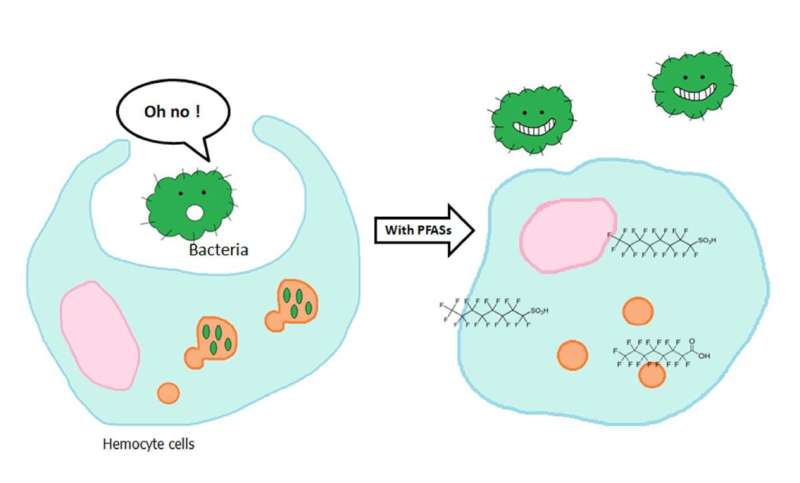Substances used in household goods affect the immune system of a coastal mussel

Perfluoalkyl substances (PFAS) is shorthand for a group of fluorinated compounds that have been used extensively in household products such as non-stick cookware, stain-resistant carpeting and upholstery. They can also be found in things from clothing to adhesives, and even in some cosmetics. PFAS use is being phased out because they have been shown to target the immune system in humans and rodents. If you check product labels the next time you are shopping, you may see "No-PFOA" or "NO-PFAS." However, PFAS substances have found their way into our environment and stay there because they are not biodegradable. The effects of PFAS on marine organisms are still not clearly understood.
In a study published in Environmental Toxicology and Chemistry, Changhui Liu and Karina Yew-Hoong Gin of the National University of Singapore hone in on the toxicity of PFAS to marine organisms by studying their effects on the immune systems of green mussels. They found that PFAS can inhibit a mussel's immune system, and they also were able to identify how it does so - in other words they defined the "modes of action."
While this may not sound good for mussels, the research also showed that the modes of action are reversible, and that the concentrations of PFAS that contributed to the adverse effects in this study are much higher than those typically observed in the environment. Mussels, and other invertebrates, play an essential role in their ecosystem, and the ocean is the final sink for many pollutants like PFAS, so it is important to monitor regions that may have higher environmental concentrations due to unregulated discharges of these substances.
More information: Changhui Liu et al, Immunotoxicity in green mussels under perfluoroalkyl substance (PFAS) exposure: Reversible response and response model development, Environmental Toxicology and Chemistry (2018). DOI: 10.1002/etc.4060
Journal information: Environmental Toxicology and Chemistry
Provided by Society of Environmental Toxicology and Chemistry



















